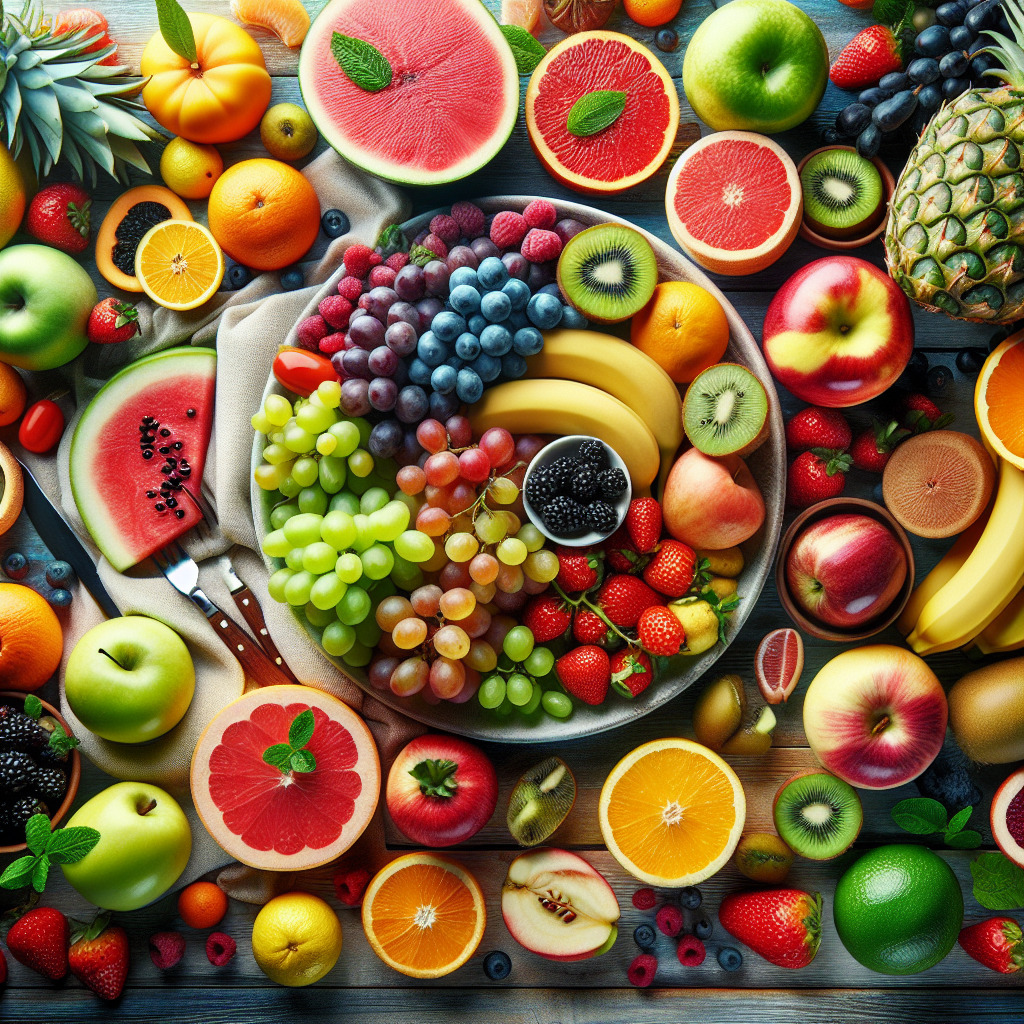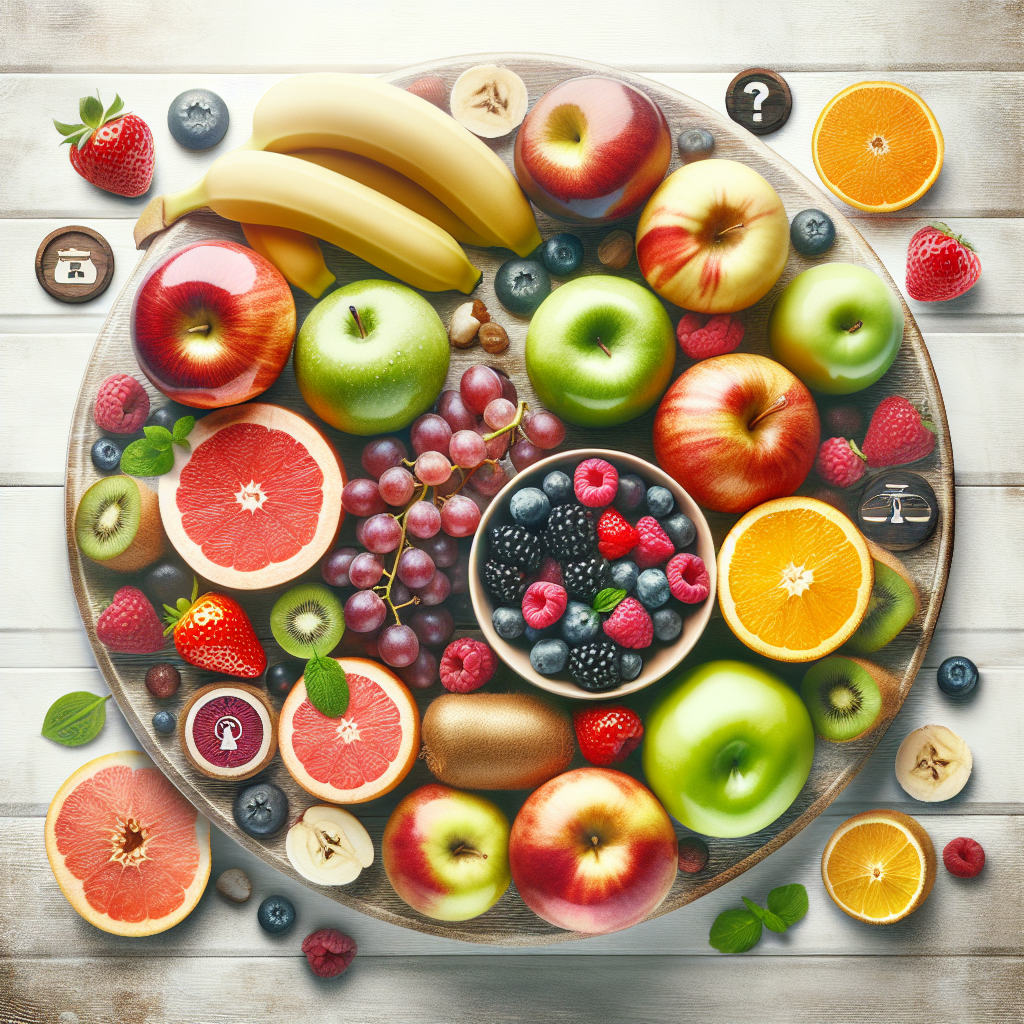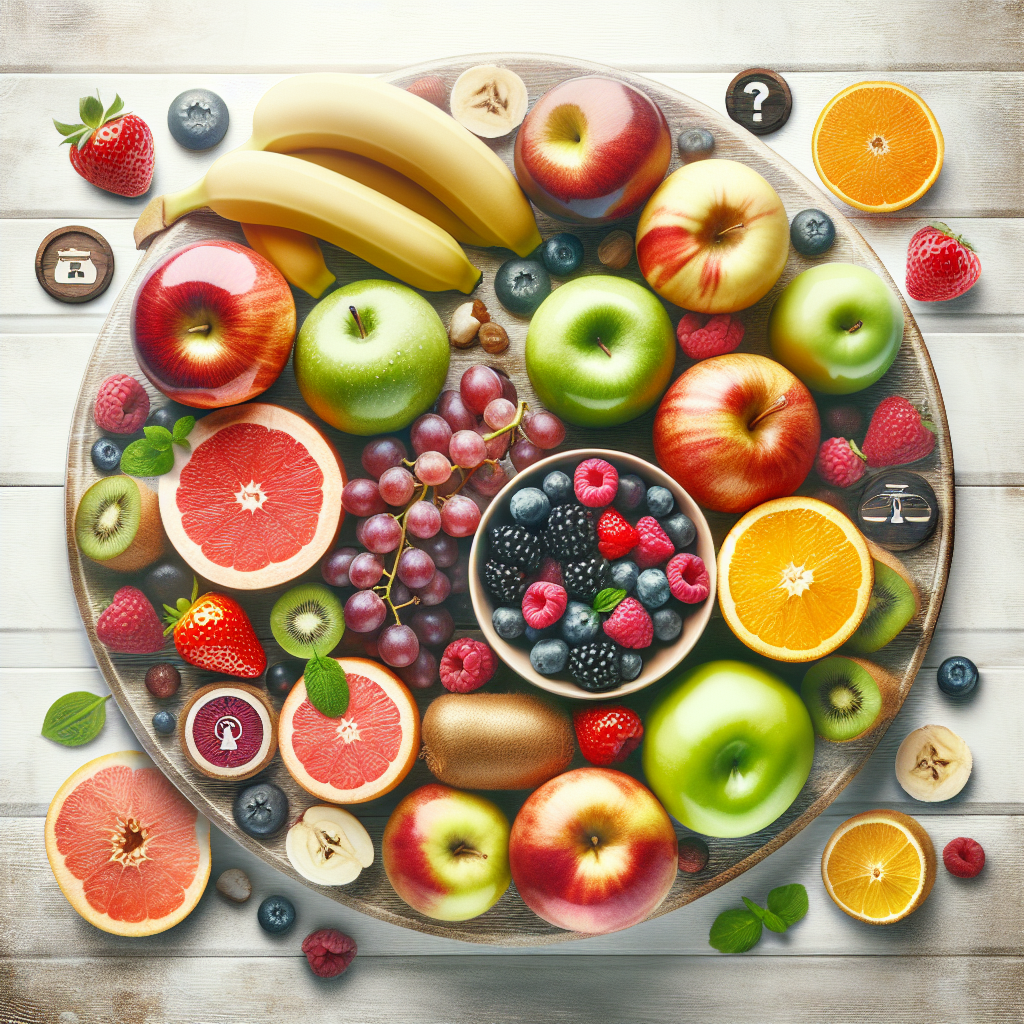Imagine a life where every meal consists of just one fruit. While it may seem like a daunting idea, the concept of a fruit-only diet has been gaining popularity recently. Advocates claim that this diet can lead to numerous health benefits, including weight loss and increased energy levels. But can you really survive on just one fruit a day? In this article, we explore the potential risks and benefits of a fruit-only diet to help you determine if it’s the right choice for you. So, buckle up and get ready to delve into the fascinating world of fruit-only diets!
Can you survive on a fruit-only diet?

The benefits of a fruit-only diet
A fruit-only diet, also known as a fruitarian diet, is a type of diet that primarily consists of fruits and excludes all other food groups. This diet has gained popularity in recent years due to its numerous claimed benefits. One of the main benefits of a fruit-only diet is its high nutritional content. Fruits are packed with essential vitamins, minerals, and antioxidants that are necessary for a healthy body. They are also low in calories and high in fiber, making them a great option for those looking to maintain or achieve a healthy weight. Additionally, the high water content in fruits helps with hydration, promoting overall well-being.
Nutritional concerns on a fruit-only diet
While a fruit-only diet may have some benefits, it is important to consider the potential nutritional concerns associated with this restrictive eating plan. One of the main concerns is the lack of complete protein intake. Fruits do not provide all the essential amino acids that our bodies need for optimal functioning. Protein is vital for muscle repair, hormone production, and immune system support. Therefore, it is crucial to ensure adequate protein intake through other food sources or supplements when following a fruit-only diet. Another concern is the limited intake of certain essential nutrients such as calcium, iron, and vitamin B12. These nutrients are primarily found in sources other than fruits, so it is important to find alternative ways to incorporate them into a fruit-only diet.
Recommended fruits for a fruit-only diet
While there are many fruits to choose from, not all fruits are created equal when it comes to a fruit-only diet. It is essential to choose fruits that are nutritionally dense and provide a variety of nutrients. Some recommended fruits for a fruit-only diet include bananas, apples, berries, citrus fruits, grapes, and melons. These fruits are rich in essential vitamins and minerals and can be easily incorporated into various meals and snacks. It is also advisable to choose organic fruits whenever possible to minimize exposure to pesticides and maximize nutritional value.
Possible health risks of a fruit-only diet
While a fruit-only diet may sound appealing, it is essential to be aware of the potential health risks associated with this restrictive eating plan. One potential risk is the lack of essential nutrients such as fat, which is necessary for proper hormone production and absorption of fat-soluble vitamins. Additionally, a fruit-only diet may lead to imbalanced blood sugar levels due to the high sugar content in fruits. This can result in energy fluctuations, mood swings, and potential long-term health complications such as diabetes. Lastly, the restrictive nature of this diet may lead to nutrient deficiencies if not carefully planned and monitored.

Finding a balance on a fruit-only diet
To mitigate the potential risks of a fruit-only diet, it is crucial to find a balance and ensure a variety of fruits are consumed. This can help ensure a more diverse nutrient profile and reduce the chances of nutrient deficiencies. It is also important to incorporate other plant-based foods such as vegetables, whole grains, nuts, and seeds to compensate for any nutritional gaps. A varied diet is essential for overall health and should not solely rely on fruits alone. Consulting with a registered dietitian or healthcare professional can provide valuable guidance on finding a balance specific to individual needs and goals.
How to transition to a fruit-only diet
Transitioning to a fruit-only diet should be done gradually and with guidance to ensure a smooth and sustainable process. It is important to listen to your body and make adjustments as needed. Start by incorporating more fruits into your meals and gradually decrease the consumption of other foods. Experiment with different fruit combinations and recipes to make the transition more enjoyable. It is also beneficial to educate yourself about the nutritional aspects of a fruit-only diet and the potential risks involved. Seek support from a healthcare professional or a dietitian who can guide you through the transition and monitor your progress.

Meal ideas for a fruit-only diet
When following a fruit-only diet, it is important to get creative with meal ideas to ensure a balanced and satisfying diet. Here are some meal ideas to consider:
-
Breakfast: Start the day with a fruit smoothie made with a variety of fruits, leafy greens, and a plant-based protein powder. Alternatively, fruit salad with a sprinkle of nuts and seeds can provide a refreshing start to the day.
-
Lunch: Try a large salad combining different fruits like berries, oranges, and grapes with mixed greens. Add a source of plant-based protein like chickpeas or tofu for a complete meal.
-
Dinner: Create a fruity twist on a stir-fry by incorporating fruits like pineapple, mango, and bell peppers. Serve it over brown rice or quinoa for a satisfying and nutritious meal.
Remember to be mindful of incorporating a variety of fruits and including other plant-based sources of essential nutrients to maintain a balanced diet.
Supporting your fruit-only diet with supplements
Due to the potential nutritional deficiencies associated with a fruit-only diet, it may be necessary to support your diet with supplements. Consult with a healthcare professional or a registered dietitian to determine which supplements are most suitable for your specific needs. Common supplements to consider include plant-based protein powders, vitamin B12, omega-3 fatty acids, and calcium. These supplements can help bridge the nutrient gaps and ensure optimal health while following a fruit-only diet.

Monitoring your health on a fruit-only diet
Regular monitoring of your health is essential when following a fruit-only diet. Keep track of your energy levels, mood, and overall well-being. If you notice any negative changes, it is important to reassess your diet and make necessary adjustments. It is also advisable to monitor key health markers such as blood sugar levels, cholesterol levels, and nutrient levels through regular check-ups with healthcare professionals. By staying proactive and attentive to your body’s needs, you can ensure that your fruit-only diet is supporting your health rather than compromising it.
Conclusion
While a fruit-only diet can provide some benefits and be nutritionally dense, it is important to approach it with caution and balance. Nutritional concerns, potential health risks, and the need for adequate supplementation must be considered when embarking on a fruit-only diet. Finding a balance through a diverse and varied diet that includes other plant-based foods is crucial for long-term health. Always consult with a healthcare professional or registered dietitian before making significant dietary changes to ensure your individual health needs are met. By being mindful of your body’s signals and staying well-informed, you can navigate a fruit-only diet in a way that supports your overall well-being.


